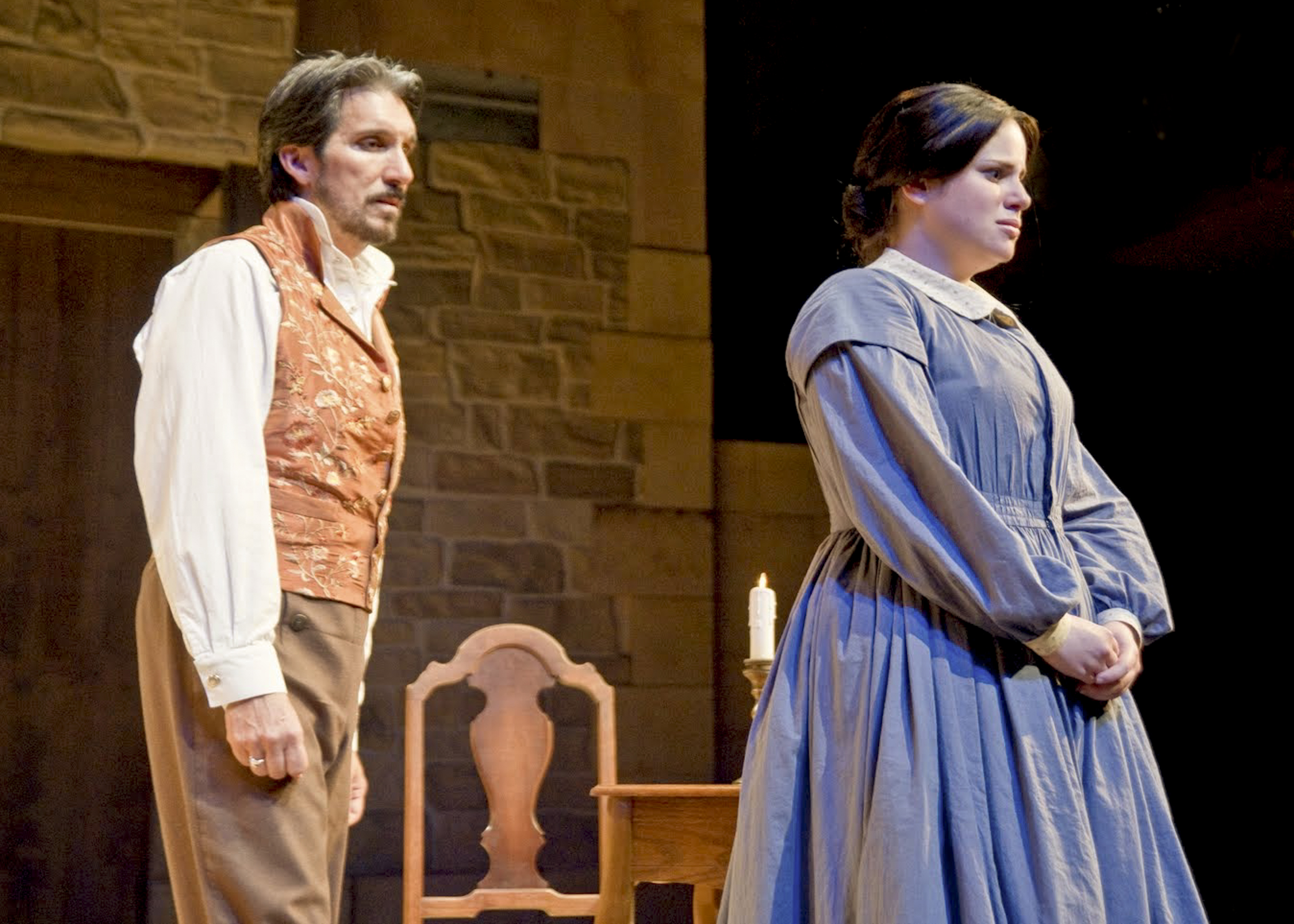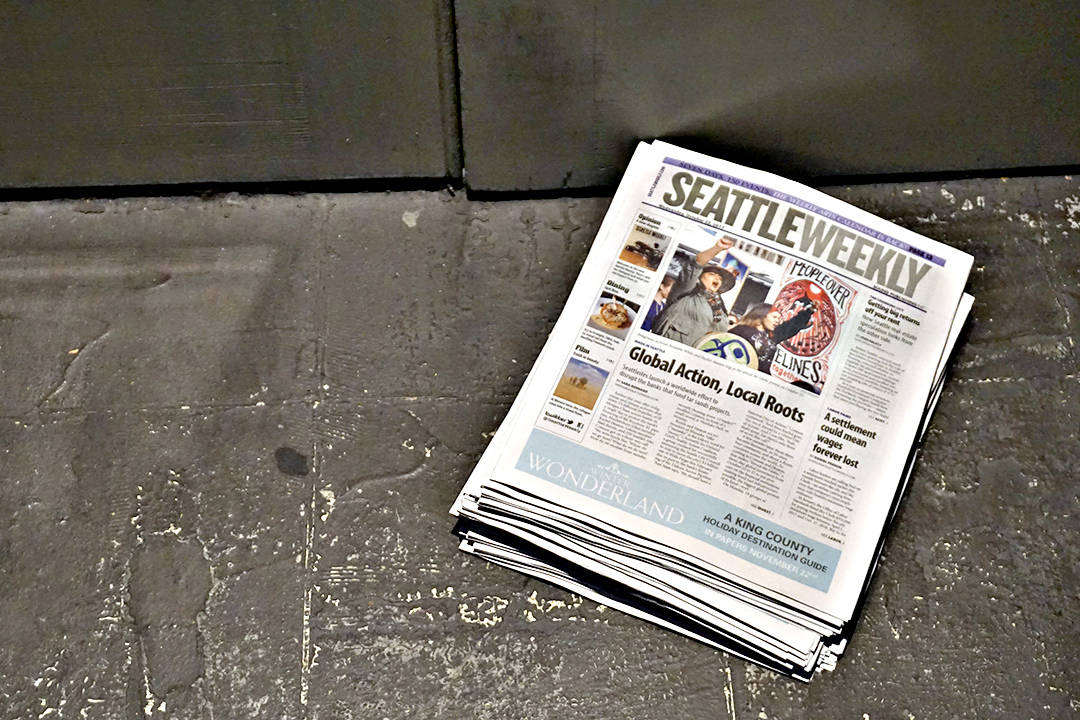Musical theater has had some success with neglected orphans (Annie or Oliver!, anyone?), so an adaptation of Jane Eyre was probably inevitable. Charlotte Bronte’s 1847 novel is, after all, one of the earliest female coming-of-age tales ever told, set decades prior during the Georgian period. The show premiered on Broadway 14 years ago, and it might sound like a slog. Quite the opposite. Directed by Karen Lund, this production moves quickly and seamlessly through Jane’s early tale of woe. The abridgement is a necessary evil in turning 400 pages into two and one-half hours (with a 15-minute intermission); something must be lost.
So instead of tedious ragamuffin reprises, Jane Eyre focuses on our heroine’s middle period. The audience is early on introduced to the soap opera at Thornfield Hall, the massive Yorkshire estate where Jane is hired to work as a governess at the pleasure of apparent bachelor Edward Fairfax Rochester. While Jane’s moral and spiritual progress is still present, it’s her relationship with Rochester that constitutes the heart of the show (created by Paul Gordon and John Caird).
This shortcut is of particular benefit to this compact production, because Art Anderson’s Rochester is a manifold pleasure to behold. He sings well, commands the stage, and mugs for the audience with assurance. Rochester’s vanity and pride are comic, but his tenderness is also clear (especially in duets with Jane). Even as he shares his backstory—including his darkest secrets—it’s easy to imagine Jane falling in love with him. The audience is likely to feel the same.
Unfortunately the same cannot be said for Jessica Spencer, who turns in an uneven performance as the grown Jane. (Abi Brittle plays defiant 10-year-old Jane.) Too often her Jane seems bewildered and lost in her moral and spiritual upheaval; it’s difficult to see the spark that draws Rochester near. In the company of others, Jane becomes a supporting player in a comedy of manners, her lowly governess providing grist for Rochester’s courtly company (to riotous effect by an excellent and elastic ensemble cast, it should be noted).
But when alone, Spencer’s Jane seizes the stage and, if briefly, brings the focus back to our heroine. During the song “Painting Her Portrait” in particular, Spencer gives a jaw-dropping performance, the seeds sown during Jane’s abusive childhood coming to fruition. It is a moving and frightening episode of self-doubt, an integral part of Jane’s transformation in this impressive telling of Bronte’s timeless tale.
Taproot Theatre, 204 N. 85th St., 781-9707, taproottheatre.org. $20–$40. Runs WEd.–Sat. Ends Aug. 16.
mbaumgarten@seattleweekly.com








